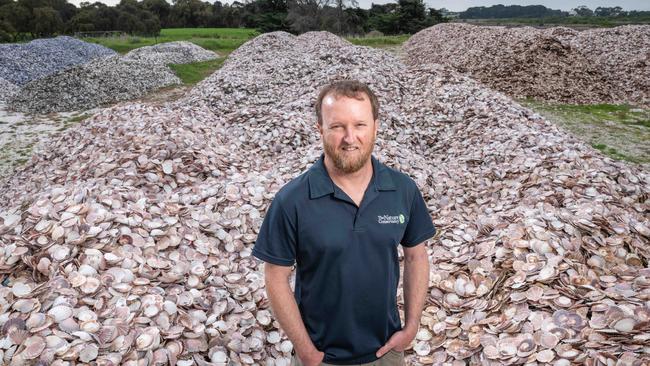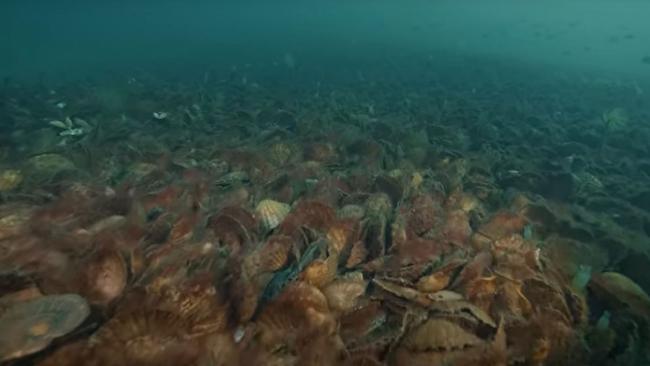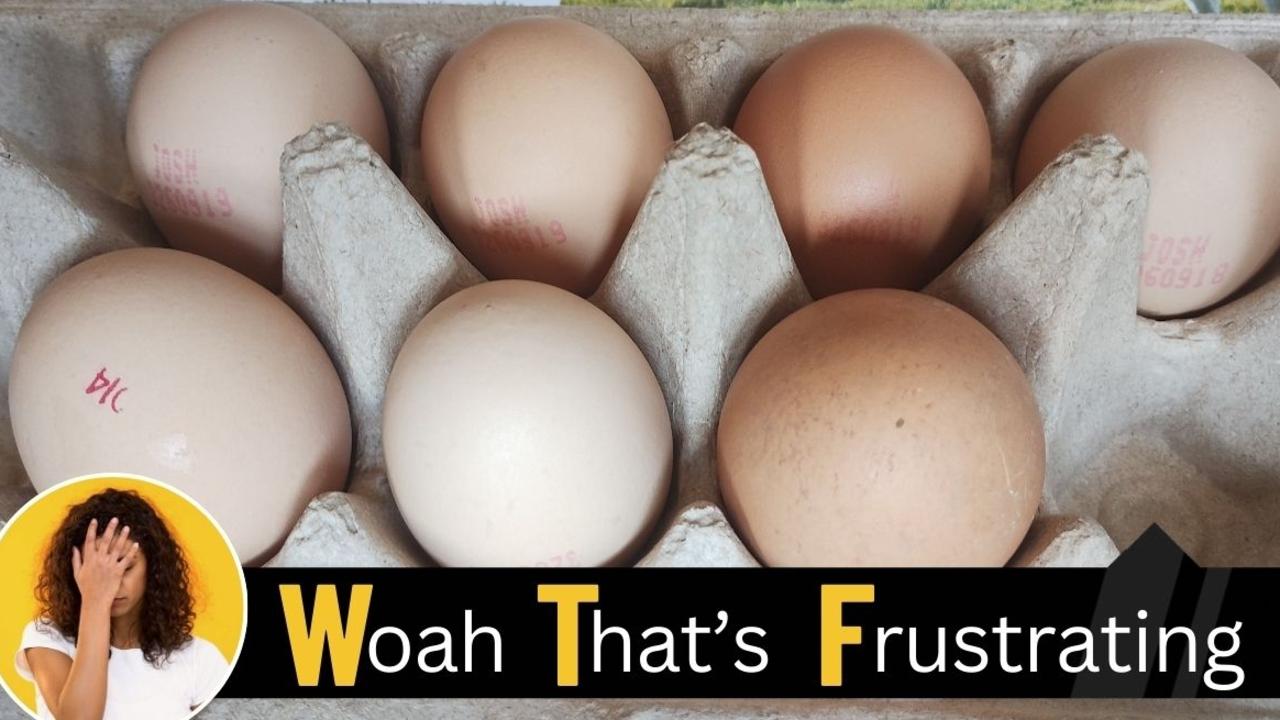Shuck Don’t Chuck program urges Geelong restaurants to recycle seafood shells
A global restoration project has put out a call to Geelong restaurants to shuck and not chuck seafood shells. Here’s how they could help preserve an endangered ecosystem.

Geelong
Don't miss out on the headlines from Geelong. Followed categories will be added to My News.
A global restoration project has put out a plea for Geelong restaurants to donate seafood shells as part in a sustainable project that could help protect a critically endangered marine ecosystem.
Simon Branigan, a marine restoration manager at Nature Conservancy Australia, is helping to turn seafood shells from restaurant waste destined for landfill into new shellfish reefs.
Shellfish reefs are a critically endangered marine ecosystem, made from billions of oysters and mussels.
The reefs once thrived in Australia’s bays, but now less than 10 per cent remain.
According to the Nature Conservancy, decades of commercial dredging, pollution and overfishing have decimated the reef habitats.
The loss of shellfish reefs has resulted in a decline in water quality and fish stocks.
Mr Branigan has been working to restore shellfish reefs in Australia for the past eight years as part of the Schuck Don’t Chuck program.
“The reason why we are recycling shells from seafood wholesalers, bars and restaurants is to first of all to save those shells from going to landfill, and then repurpose them to restore shellfish reefs in Port Phillip Bay,” Mr Branigan said.

“It’s a threatened ecosystem and shellfish reefs are incredibly important in terms of fish productivity.
“They create habitat for the smaller cryptic fish species and also habitat for some of those more recreationally important species that people like to catch.
“We have a shell curing site near St Leonards … basically those shells get cured and weathered for at least six months to kill off any diseases or pathogens.”
Since 2015 the Nature Conservancy has been working on restoring shellfish reefs at three sites in Port Phillip Bay, including Wilson Spit near Portarlington and 9ft Bank off Point Wilson.
The reefs are constructed starting with a base of hundreds of tonnes of limestone rocks and recycled seafood shells.
Hundreds of thousands of Australian Flat Oysters grown at the Victorian Shellfish Hatchery in Queenscliff and blue mussels grown by a Port Phillip Bay Aquaculture Farmer are then scattered on top of the reefs.
satria.dyer-darmawan@news.com.au
More Coverage
Originally published as Shuck Don’t Chuck program urges Geelong restaurants to recycle seafood shells





